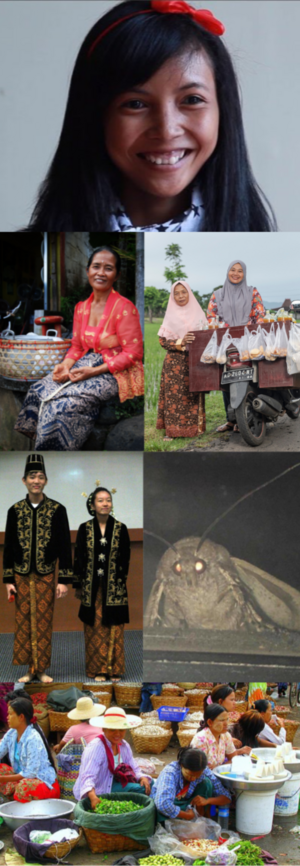Loa: Difference between revisions
Takatta Loa (talk | contribs) mNo edit summary Tag: 2017 source edit |
Takatta Loa (talk | contribs) mNo edit summary Tag: 2017 source edit |
||
| Line 38: | Line 38: | ||
| region13 = {{flag|Caergwynn}} | | region13 = {{flag|Caergwynn}} | ||
| pop13 = 25,000 | | pop13 = 25,000 | ||
| langs = Insuo Loa | | langs = [[Insuo Loa]] | ||
| rels = {{plainlist| | | rels = {{plainlist| | ||
* [[Kapuhenasa]] | * [[Kapuhenasa]] | ||
| Line 51: | Line 51: | ||
}} | }} | ||
The '''Loa''' are a cultural and ethnic group found predominantly in [[Vallos]], being native to the [[Takatta Loa|Republic of Takatta Loa]]. There is a large Loa diaspora, consisting largely of neighboring Vallosian and [[Sarpedon|Sarpedonian]] nations, as well as other nations in the [[Coscivo-Loa Sphere]] such as [[Kiravia]] and [[Paulastra]] | The '''Loa''' are a cultural and ethnic group found predominantly in [[Vallos]], being native to the [[Takatta Loa|Republic of Takatta Loa]]. There is a large Loa diaspora, consisting largely of neighboring Vallosian and [[Sarpedon|Sarpedonian]] nations, as well as other nations in the [[Coscivo-Loa Sphere]] such as [[Kiravia]] and [[Paulastra]]. The Loa migrated to these nations either during the [[Takatta Loa Civil War]] or during the 20th century following the political liberalization of the country and the foundation of the republic, though migration to Coscivian speaking countries also occurred during the first half of the 1900s as well due to close historical ties to Kiravia. | ||
The term ''Loa'' refers to a very broad collection of groups unified by a general sense of Loa nationalism, language and broad cultural features. These groups include the Isi Loa who are the progenitors of Loa culture and civilisation, the Loa influenced cultures such as the various mainland Polynesians that were assimilated into the Loa and the many elements of the Loa diaspora. These groups combined constitute the Loa, though all generally recognize the Isi Loa as being the 'ethnic' Loa and the other groups considering themselves as culturally Loa. | |||
==Etymology== | |||
==Ethnogenesis== | |||
==History== | |||
==Demographics== | |||
==Culture== | |||
===Agriculture=== | |||
===Cuisine=== | |||
===Architecture=== | |||
===Language=== | |||
===Clothing=== | |||
===Art=== | |||
===Religion=== | |||
===Worldview and Philosophy=== | |||
==Notable Loa== | |||
Revision as of 22:46, 26 September 2023
Loa | |
|---|---|
 Clockwise from top: A Loa girl from the northern Seoua Highlands ~ Safa Loa selling traditional Islamic pastries ~ High Minister of Foreign Affairs Ngueka ueue Kalai'iinga ~ A marketplace in eastern Ahoso ~ A traditional Masa wedding pair ~ A woman from Disa'adakuo | |
| Total population | |
| c. 155,090,053 worldwide, 134,562,985 in Takatta Loa, 20,527,068 diaspora | |
| Regions with significant populations | |
| 134.5 million | |
| 10 million | |
| 4.8 million | |
| 2 million | |
| 1,075,465 | |
| 1 million | |
| 900,000 | |
| 250,000 | |
| 10,000 | |
| 212,000 | |
| 120,000 in Truk | |
| 30,000 | |
| 25,000 | |
| Languages | |
| Insuo Loa | |
| Religion | |
| Related ethnic groups | |
The Loa are a cultural and ethnic group found predominantly in Vallos, being native to the Republic of Takatta Loa. There is a large Loa diaspora, consisting largely of neighboring Vallosian and Sarpedonian nations, as well as other nations in the Coscivo-Loa Sphere such as Kiravia and Paulastra. The Loa migrated to these nations either during the Takatta Loa Civil War or during the 20th century following the political liberalization of the country and the foundation of the republic, though migration to Coscivian speaking countries also occurred during the first half of the 1900s as well due to close historical ties to Kiravia.
The term Loa refers to a very broad collection of groups unified by a general sense of Loa nationalism, language and broad cultural features. These groups include the Isi Loa who are the progenitors of Loa culture and civilisation, the Loa influenced cultures such as the various mainland Polynesians that were assimilated into the Loa and the many elements of the Loa diaspora. These groups combined constitute the Loa, though all generally recognize the Isi Loa as being the 'ethnic' Loa and the other groups considering themselves as culturally Loa.